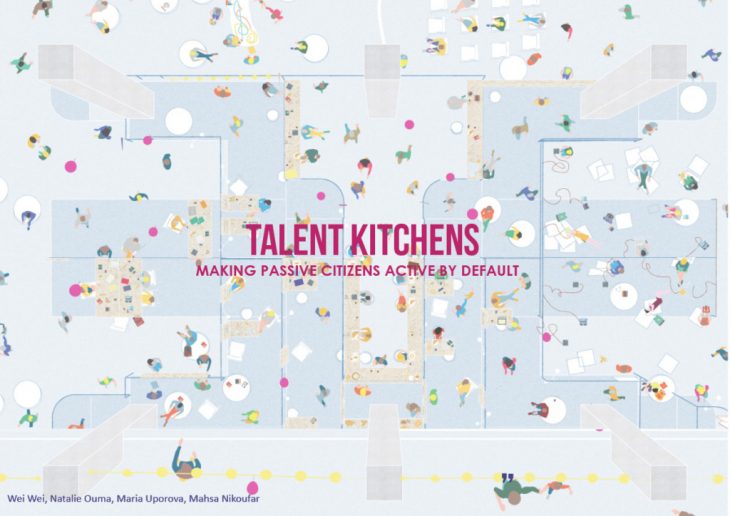 Our project is a response to two visions of the role of the citizen: Neom and Hyper-Reality.
Our project is a response to two visions of the role of the citizen: Neom and Hyper-Reality.
Neom is an urban project from Saudi Arabia led by Siemens promising a city with a list of vast futuristic application and innovation.
Hyper-Reality: Hyper-Reality is a concept film by Keiichi Matsuda. It presents a provocative and kaleidoscopic new vision of the future, where physical and virtual realities have merged, and the city is saturated in media.
What are the problems of such initiatives?
Neom: In Neom, the citizen is just a plug in coming in to enjoy a finished product. Instead of solving issues dealing with the complexity of existing cities. It is conveniently.start a utopia up from the ground led by a tech company conveniently not included in the narrative.
Hyper reality: The City Os seems to have taken over to an extent where citizens are no longer in control of much of their life choices.
Thesis: How can we define a new system for development with every citizen having an active role?
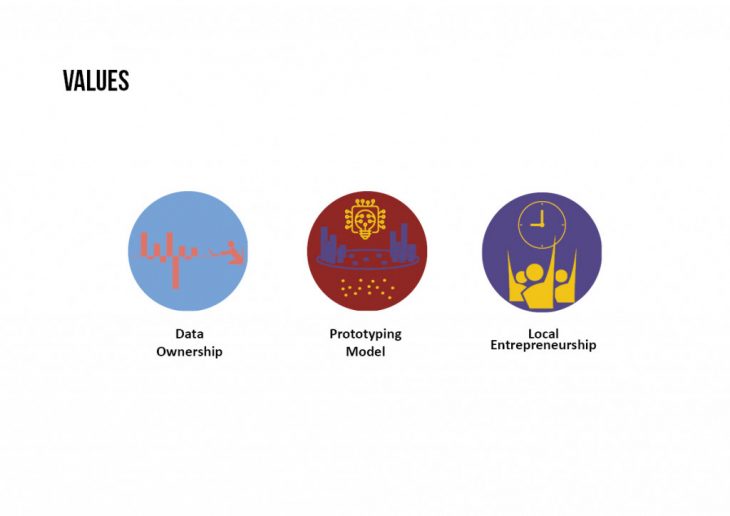 1. Data Ownership
1. Data Ownership
Our first directive was to put data ownership at the center. Where solutions are customized based on inhabitants personal data. As technology evolves. Humans who are the source of Data are inched way from the world of compensation.We propose a city enforcing digital dignity where each individual will be the commercial owner of any data that can be measured from that persons state or behaviour. Treating information as a source behind which real people are participants.
Citizen could be able to generated data in three ways:
- To complete an existing data set
- Contradict an existing data set
- Create a new data set
In the event that something a person says or does contributes even minutely to a database Then a nano payment proportional both to the degree of contribution and the resultant fee, will be due to the person.
2.Projects filtered through the city
Rejecting the product oriented nature of urban tech as all knowing with a one size fits all approach.All projects integrated in the city will have to be filtered through Talent Kitchens and popular vote before being implemented. Why would businesses do this? Even with the amount of data collected tody¡ay, it is often inaccurate by 30-50%. Moreover, with the General Data Protection Regulation in the EU, which gives far greater protection to individuals and their privacy, this will reduce the quality of data even further for businesses.
This would make the city an attractive location for business to prototype their products.
3.Local entrepreneurship
If citizens own their own data this would create an interesting opportunity for entrepreneurship.
Talent kitchen
Our project focuses on a new City structure where experimentation is at the center, individual talents are celebrated and citizen engagement is the metric for success.The city offering experimentation as a Service. City would provide as a facilitator ecosystem. Innovation will be facilitated by the convergence of physical and digital spaces. Digital spaces will serve as a platform for the exchange of ideas and co-creation while physical spaces would be redefined as Talent Kitchens for prototyping and the pitching of ideas. In this scenario, all citizens will be rendered participants either contributing data, Time and skill or rating projects.In this way the City becomes an extreme coworking space!
Stakeholders
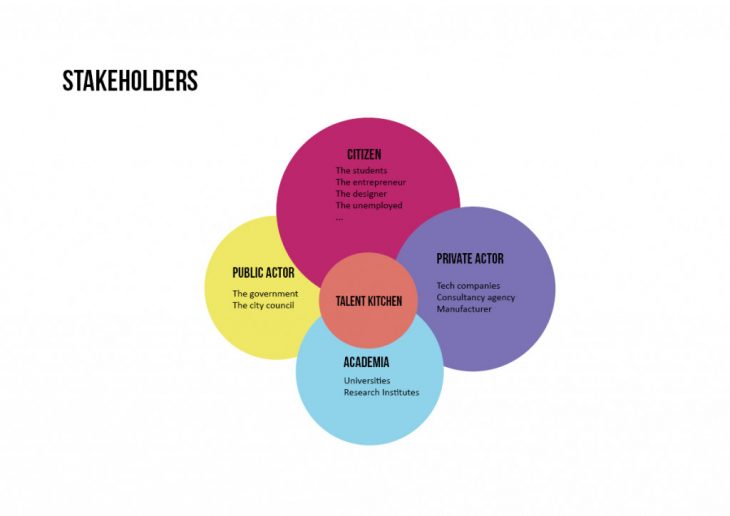 Process:
Process:
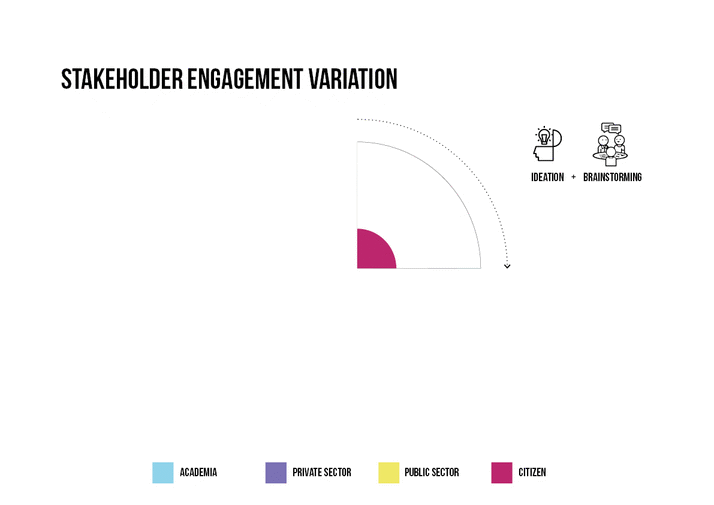 Ideation and brainstorming phase where citizens want to develop their ideas, and form teams.The next phase when the project is being formed, all the stakeholders are engaged in this step to make sure that it is being enhanced from all perspectives. Forming these collaborations will make urban solutions more efficient and helps shape new regulatory frameworks and financing models. As a result,a filtration happens for improving the idea, and prototyping starts.
Ideation and brainstorming phase where citizens want to develop their ideas, and form teams.The next phase when the project is being formed, all the stakeholders are engaged in this step to make sure that it is being enhanced from all perspectives. Forming these collaborations will make urban solutions more efficient and helps shape new regulatory frameworks and financing models. As a result,a filtration happens for improving the idea, and prototyping starts.
Then there is the experimentation phase, in which the service/product is experimented in the urban context. During the experimentation, citizens react to the project and share what they think.
One thing that is different during this process, is that because the citizen have ownership of their data, they are key players during the whole process. And while experimentation happens in the urban context, the story of how this service/product is made is reflected ,encouraging the engagement of the community.
Finally, The projects can be refined based on citizens feedback ,and the successful cases can scale up by launching the project on the kitchen network where everyone can vote on scaling up the project, in the scaling up step the public sector makes sure that.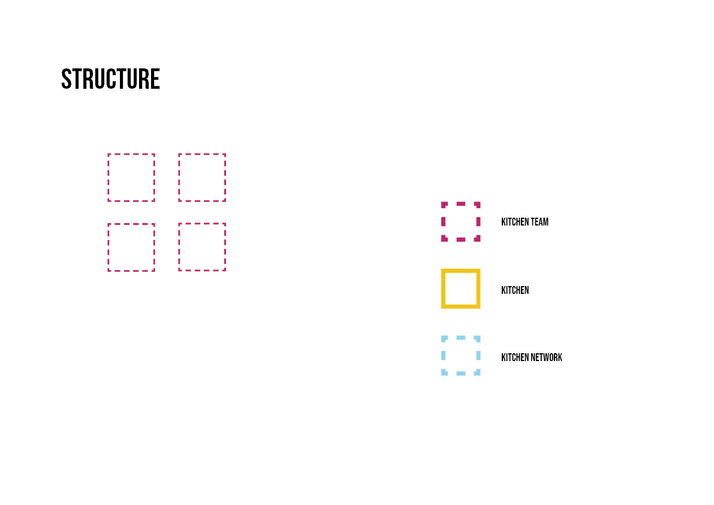 So the structure is set in 3 scales, where there is different teams of local entrepreneurs and contributors, and they develop the project furthermore in the kitchen shaping partnerships, and then the network.
So the structure is set in 3 scales, where there is different teams of local entrepreneurs and contributors, and they develop the project furthermore in the kitchen shaping partnerships, and then the network.
This is a neighbourhood where the their idea, Two talent kitchens are operating here in current moment, one of them is focused on Public Health and the second one is about Waste management.
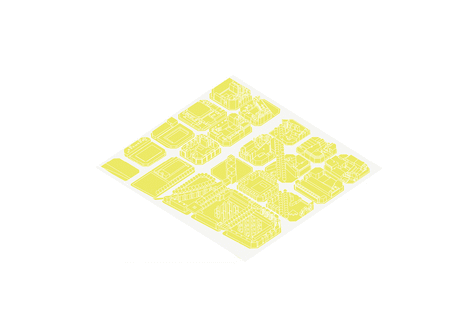 The project was built for a neighborhood scale but it can be scaled globally. Each talent kitchen will have a link with other talent kitchens in different cities of the world. In this way, it will become possible to modify,adding or developing their own idea based on other local projects. Wherever they are in real life space, the digital system of talent kitchen can bring them into a virtual space.
The project was built for a neighborhood scale but it can be scaled globally. Each talent kitchen will have a link with other talent kitchens in different cities of the world. In this way, it will become possible to modify,adding or developing their own idea based on other local projects. Wherever they are in real life space, the digital system of talent kitchen can bring them into a virtual space.
Storytime
You have seen how we imagine this strategy, now Lets see how the citizen experiences it.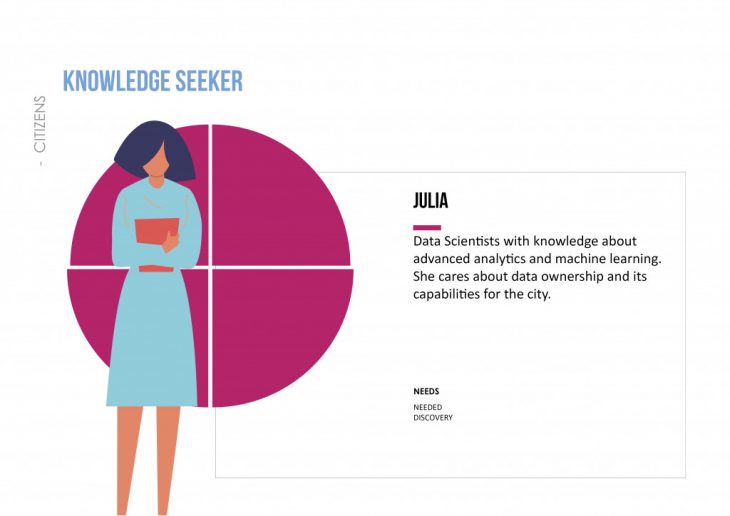
This is Julia. She is a data scientist with knowledge about advanced analytics and machine learning. She cares about data ownership and its capabilities for the city. She is able to check in the Talent Kitchens platform that includes the map of talents which means that different people can localize their skills, so Julia can find different people and assemble her team.
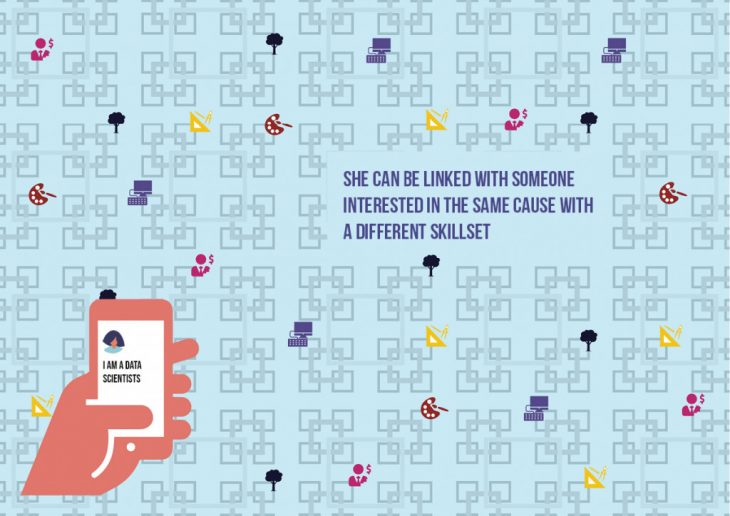
Mark – architect
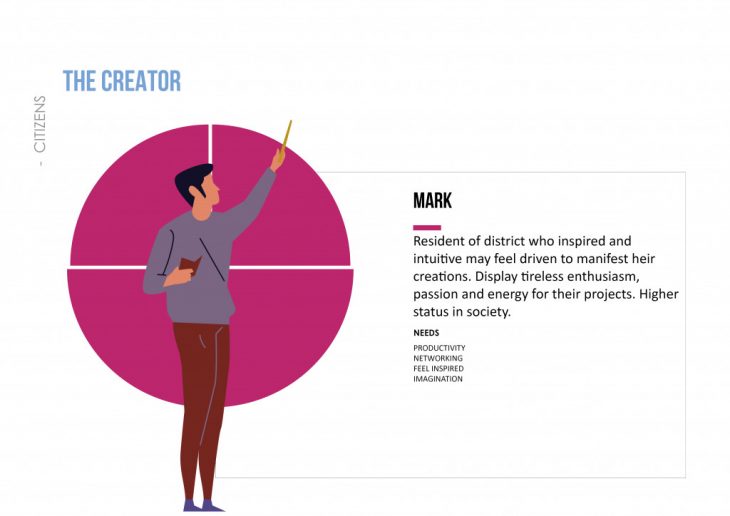
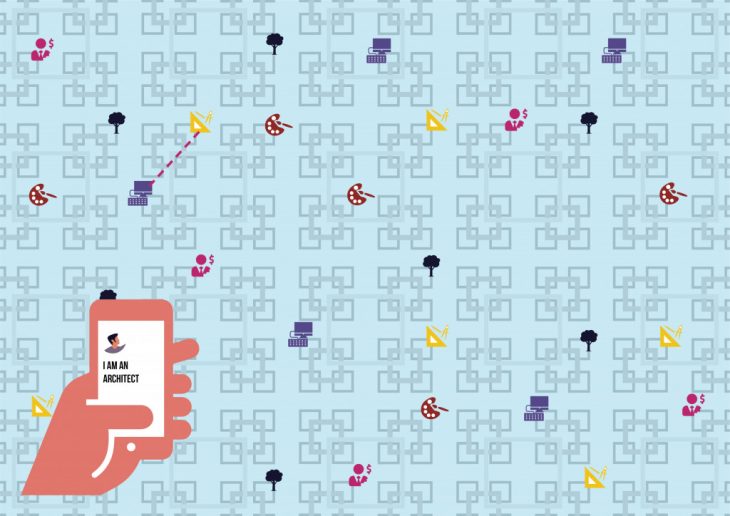
Nicky- biologist
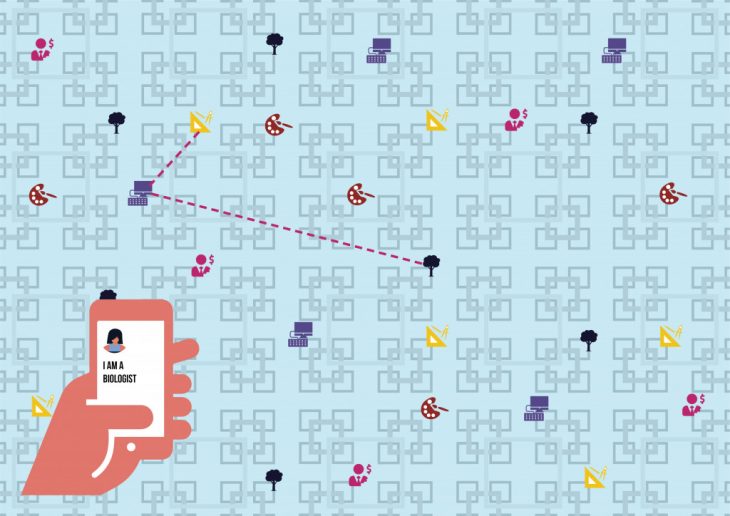
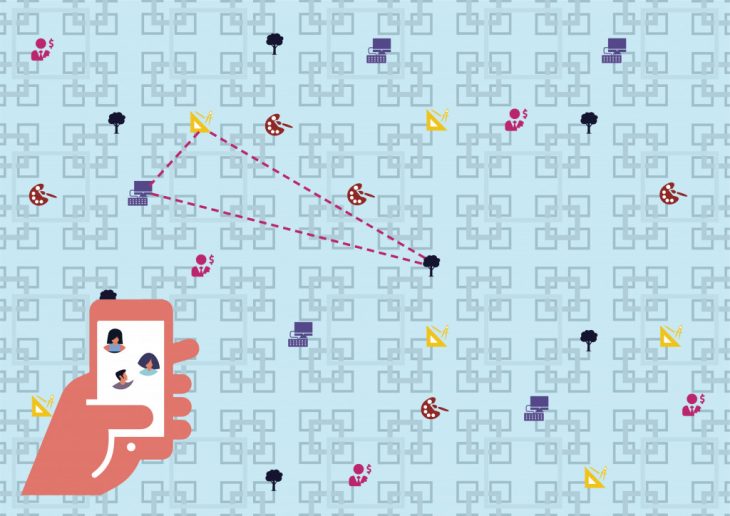
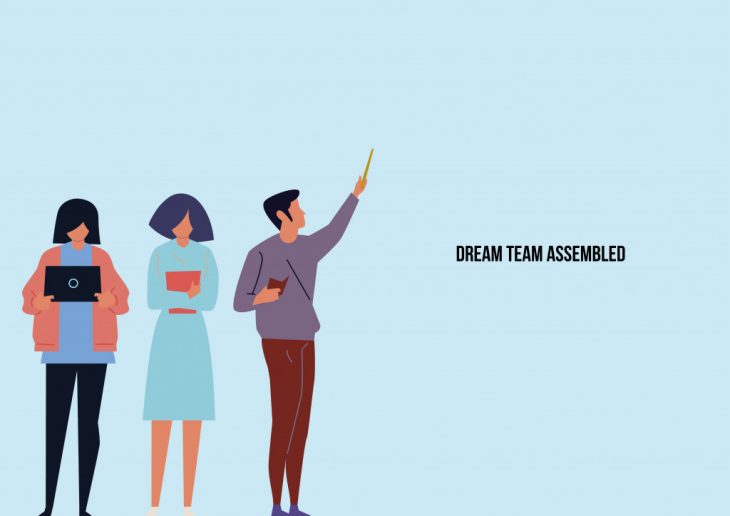
The team also partners with an urban tech company The company is interested in partnerships with the kitchens because if they want to expand their market in the city, their product has to go through the process of experimentation and filtration .
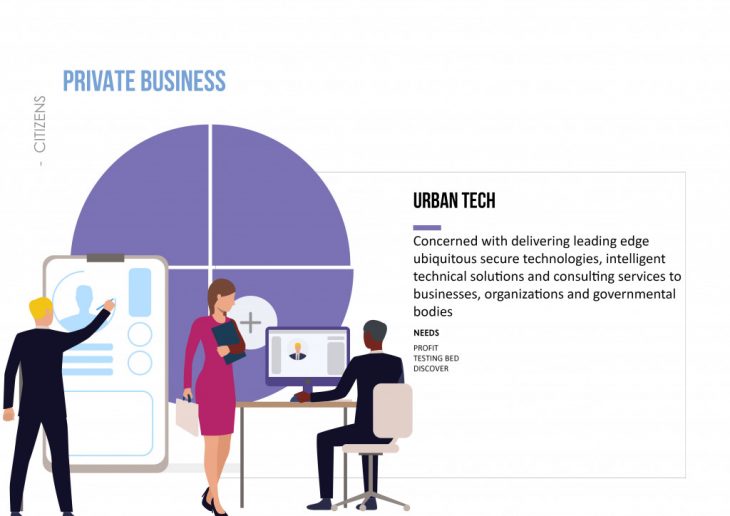
So the team that has been described before is interested in circular economy and they believe that waste management plays an important role in it, that’s why they joined Waste management kitchen. To make this prototype, They need not only their skills but also citizens to provide data such as: purchases in order to understand what type of waste is produced in their neighbourhood.
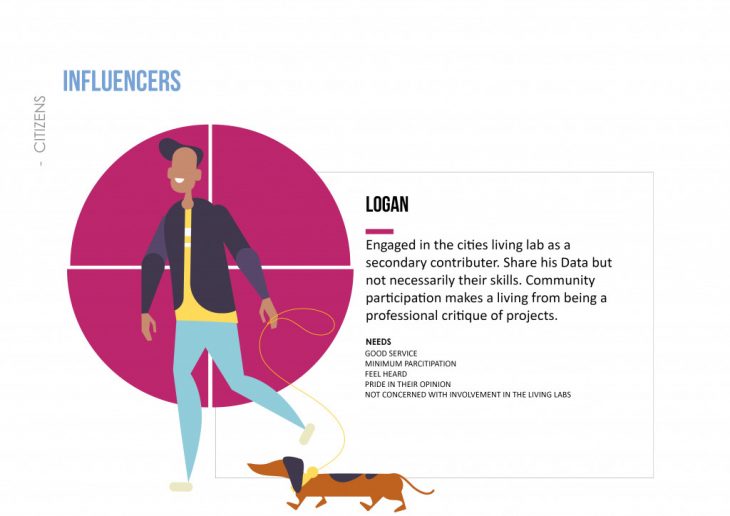
Once the project is done it is placed in the public space. Logan is involved in the process as a secondary contributer sharing his data and rating projects. He represents a majority of the population. 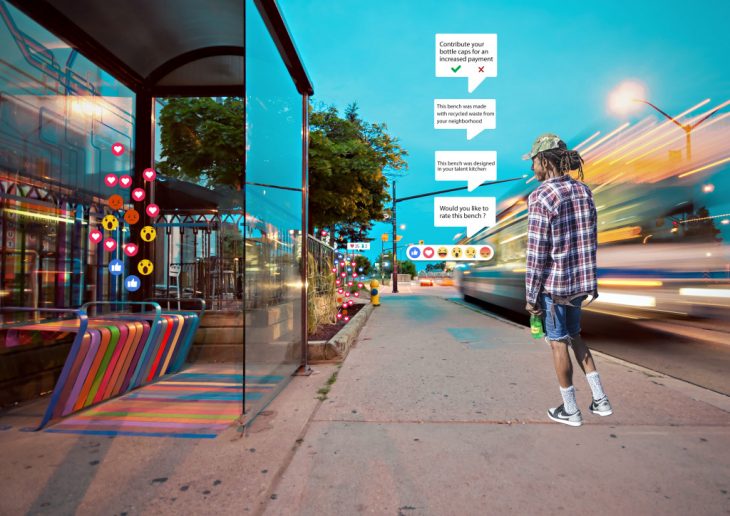 The project was built for a neighborhood scale but it can be scaled globally. Each talent kitchen will have a link with other talent kitchens in different cities of the world. In this way, it will become possible to modify,adding or developing their own idea based on other local projects. Wherever they are in real life space, the digital system of talent kitchen can bring them into a virtual space.
The project was built for a neighborhood scale but it can be scaled globally. Each talent kitchen will have a link with other talent kitchens in different cities of the world. In this way, it will become possible to modify,adding or developing their own idea based on other local projects. Wherever they are in real life space, the digital system of talent kitchen can bring them into a virtual space.
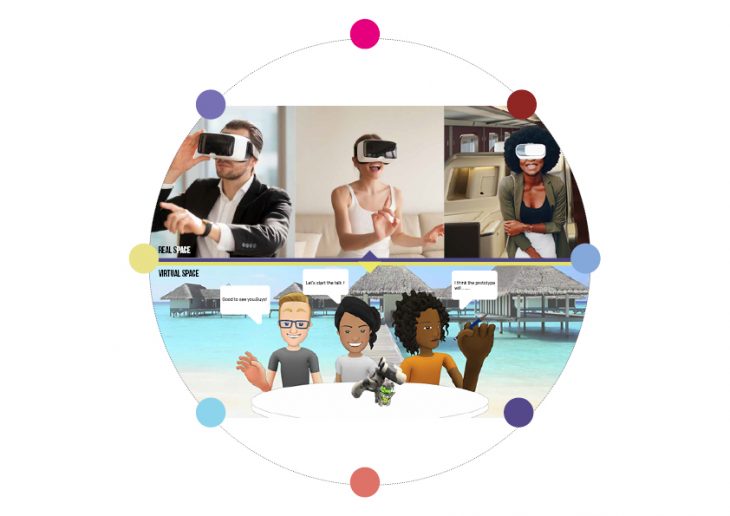
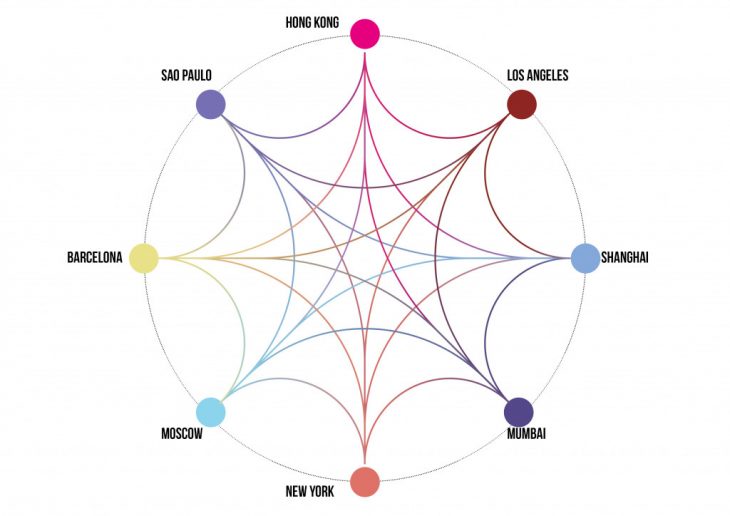
Conclusion:We think that everyone in a city should have a say in the direction the city takes and how it addresses its challenges, rather than just those with the most money or the loudest voice. When city authorities offer Experimentation as a Service, everyone in the city is empowered to tackle their local issues and to learn from one another. The relationship between public authorities, developers, researchers, businesses and citizens shifts from one that is competitive, unaligned and often misunderstood, to one that is collaborative, open and focused on a common goal of making our cities the most resilient, sustainable and liveable spaces for people.
Talent Kitchen is a project of The Role of the Citizens in the City of IaaC, Institute for Advanced Architecture of Catalonia
developed at Master in City & Technology in (2018/2019) by:
Students: Wei Wei, Maria Uprova , Mahsa Nikoufar and Natalie Adhiambo Ouma
Faculty: Kathrin DiPaola, Julius Streifeneder, Sophie Stigliano